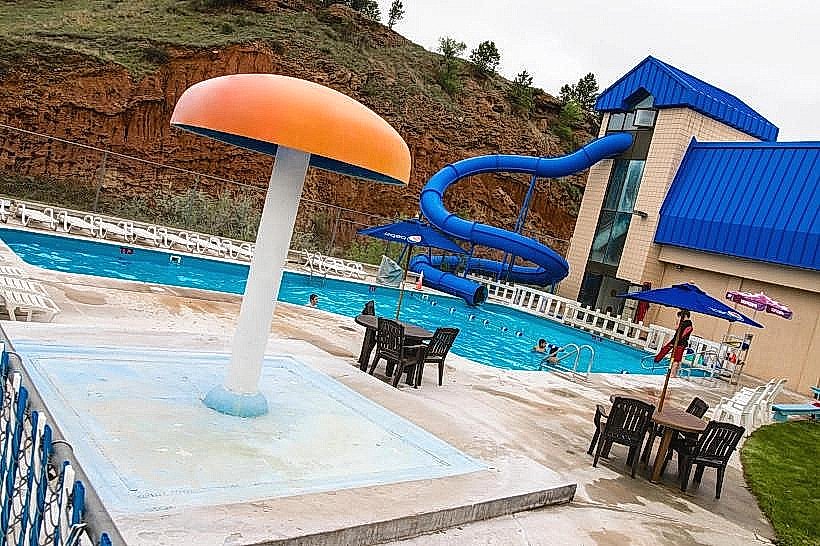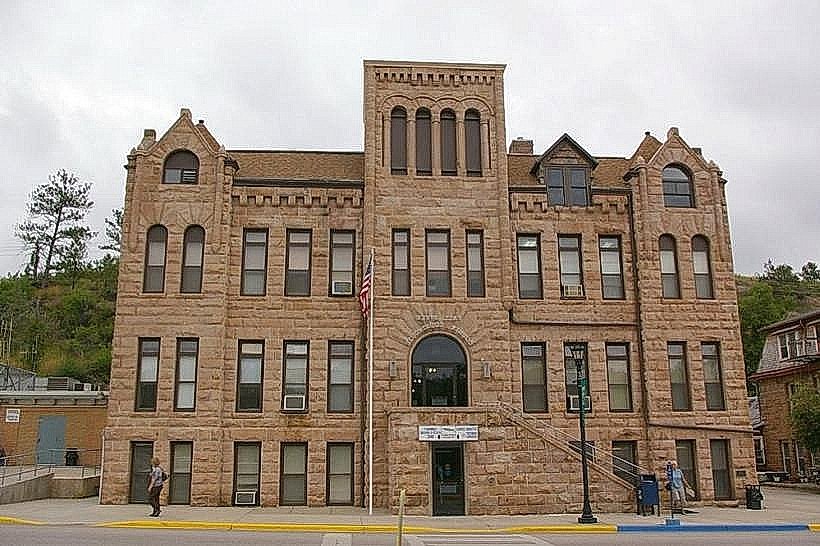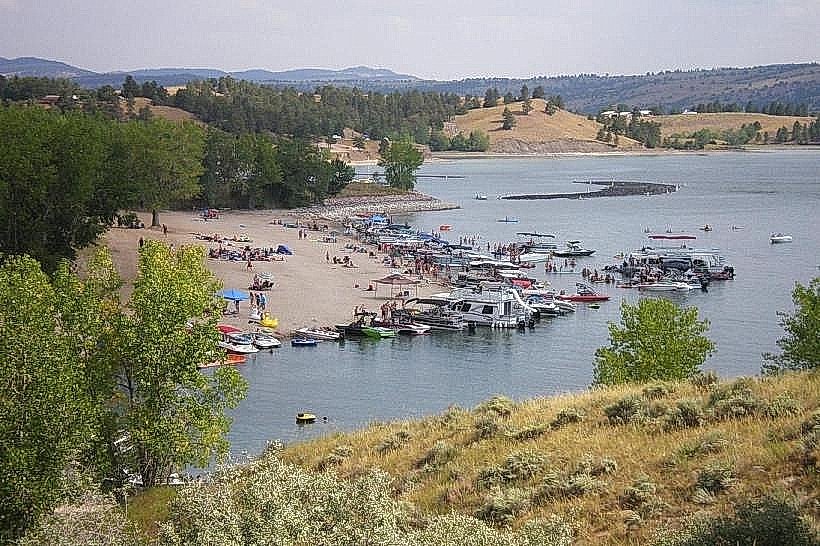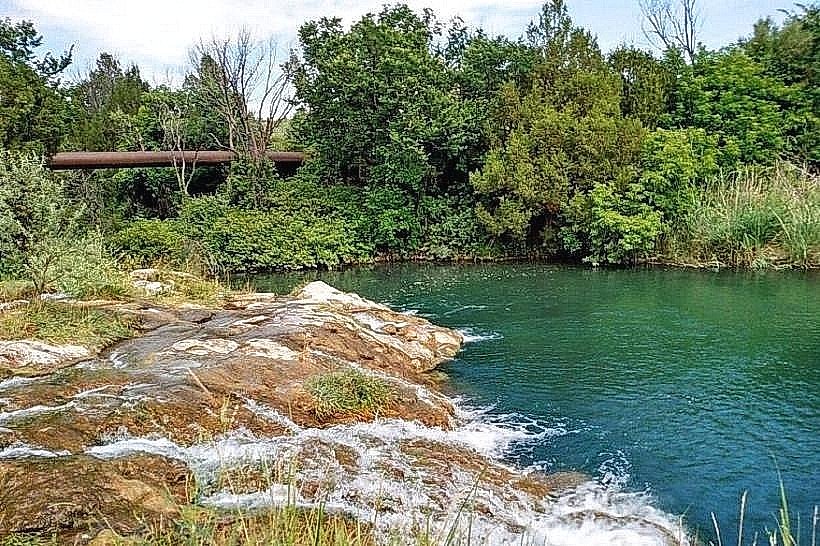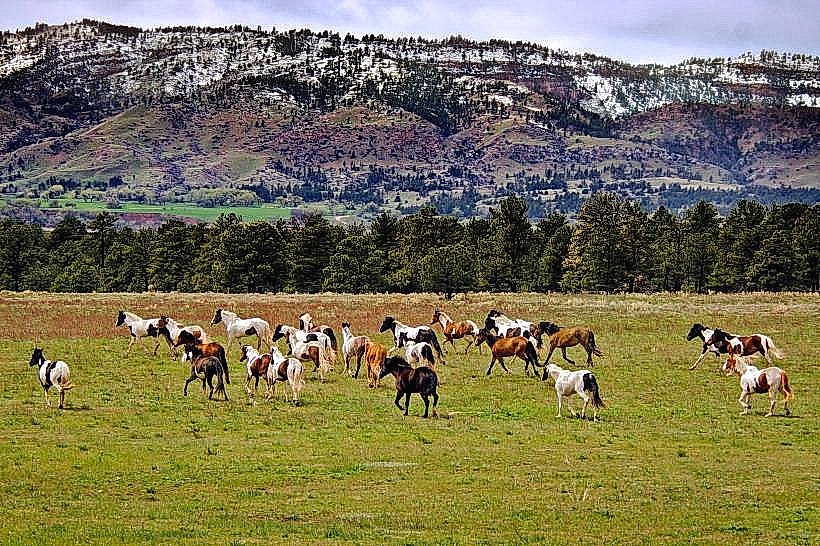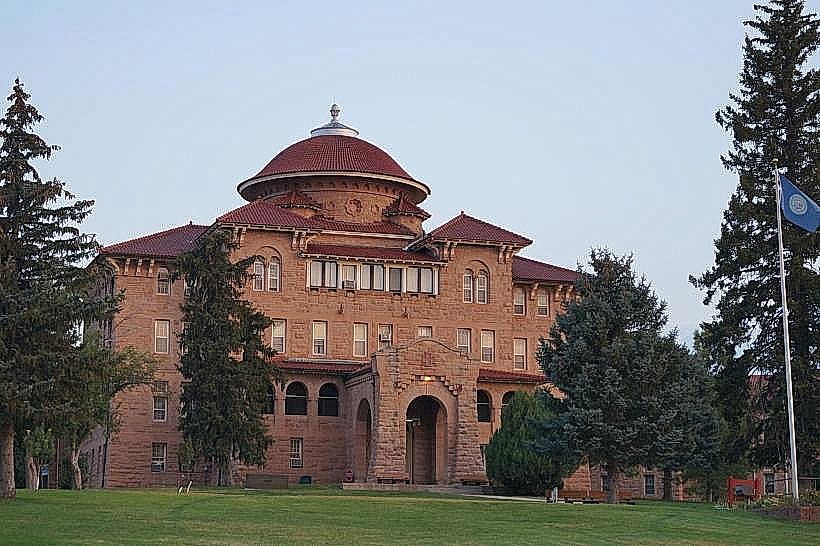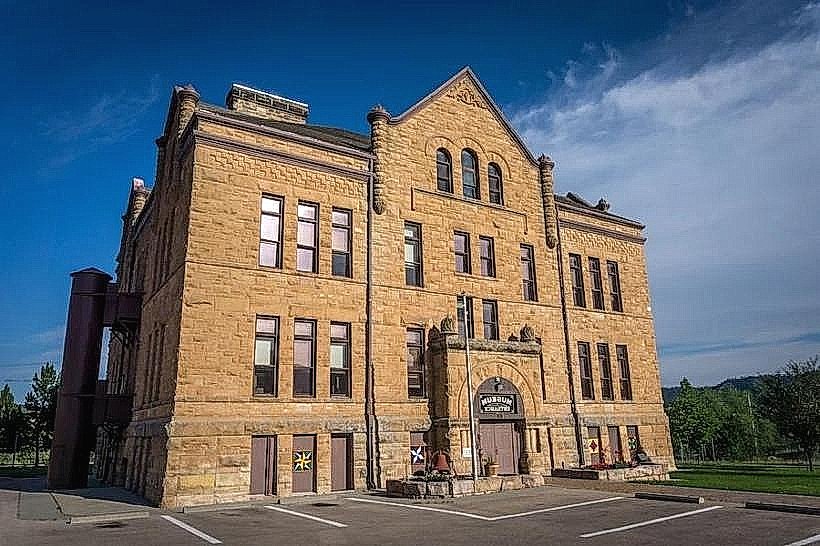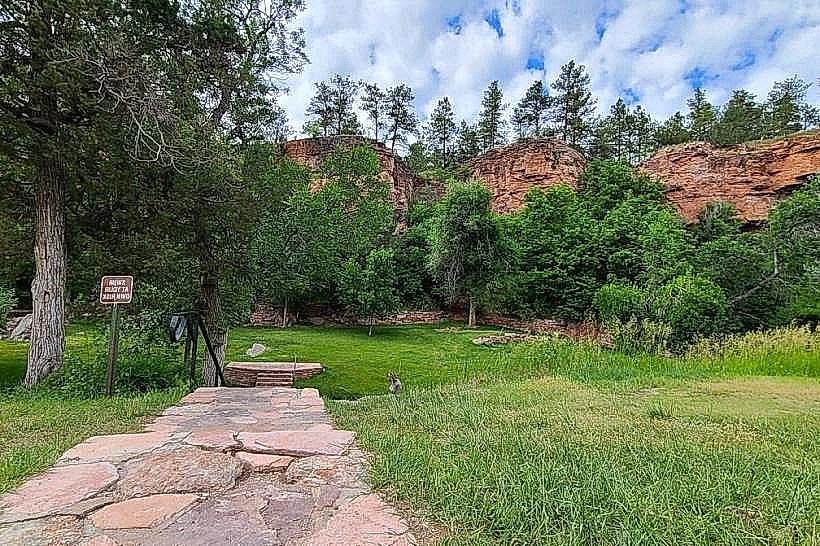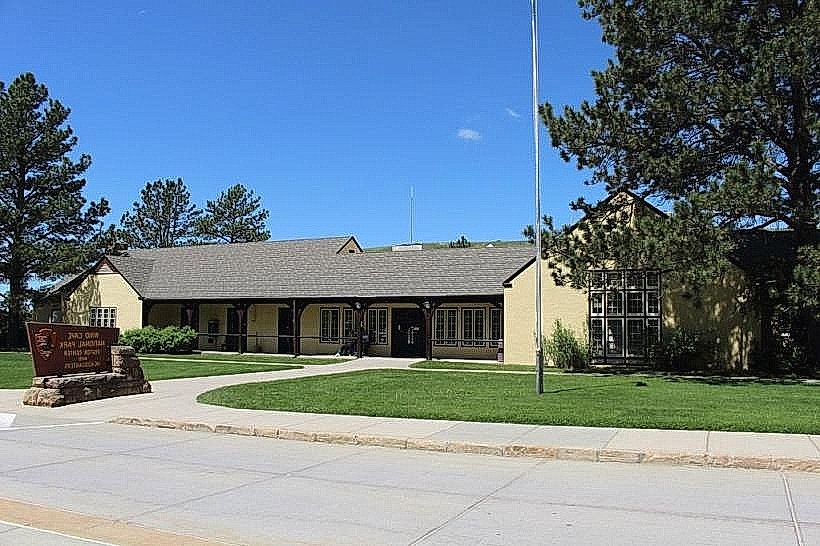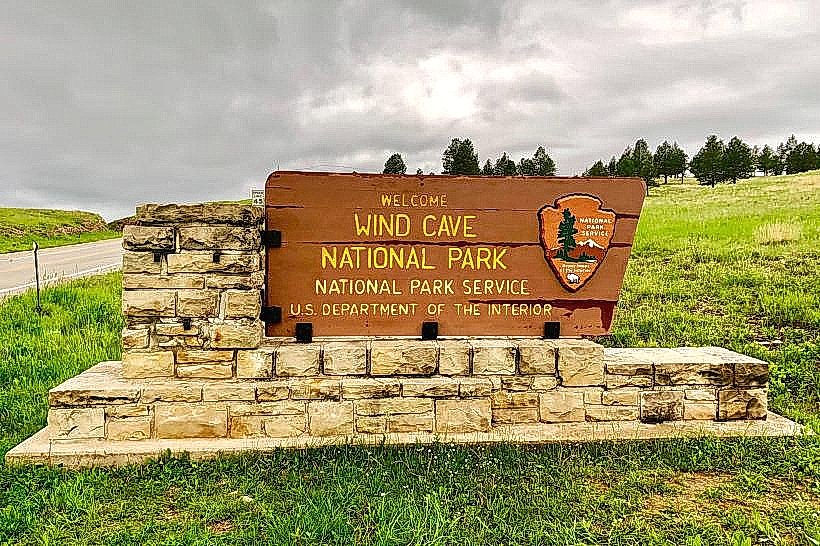Information
Landmark: Mammoth Site of Hot SpringsCity: Hot Springs SD
Country: USA South Dakota
Continent: North America
Mammoth Site of Hot Springs, Hot Springs SD, USA South Dakota, North America
Setting and Atmosphere
The Mammoth Site of Hot Springs, located in the southern Black Hills of South Dakota, is one of the most fascinating and scientifically significant paleontological sites in North America. The complex sits just off U.S. Highway 18, on the edge of the small spa town of Hot Springs, known for its mineral waters and red sandstone architecture. From the outside, the building appears modest, but inside lies an active excavation that brings visitors face-to-face with the Ice Age. The air is cool and slightly earthy, carrying the faint scent of clay and stone dust, while the space hums with quiet activity - scientists, volunteers, and curious visitors moving among ancient bones still half-buried in the sediment.
History and Discovery
The Mammoth Site was discovered by chance in 1974, when a construction crew breaking ground for a housing development unearthed large bones. Work halted immediately, and scientists soon realized that the find was extraordinary: an ancient sinkhole filled with the remains of Columbian and woolly mammoths preserved in remarkable condition. What began as a construction delay became one of the most important Ice Age fossil sites in the world, now protected as both a museum and active dig.
Formation and Geological Context
Roughly 26,000 years ago, a natural sinkhole formed when an underground cavern collapsed and filled with warm, spring-fed water. The resulting pond, ringed with slippery edges, attracted mammoths and other large animals seeking a drink or mineral soak. Many of them - mostly young males - lost their footing, slid into the pool, and were unable to escape. Over thousands of years, their remains accumulated and were gradually buried by sediment, creating a time capsule of Pleistocene life.
Excavation and Exhibits
Inside the vast dig shelter, visitors stand on elevated walkways overlooking an active excavation pit that spans nearly 36,000 square feet. More than 60 mammoths have been discovered to date - primarily Columbian mammoths (native to the Great Plains) and a few woolly mammoths from colder northern regions. Their massive tusks curl through the red earth, and rib cages, skulls, and limb bones lie partially exposed, exactly where they were found.
What makes the site exceptional is that excavation continues year after year, and all work takes place indoors, allowing scientists to dig in a controlled environment. Signs and digital screens explain each layer and bone structure, while transparent panels mark where fossilized remains rest undisturbed. Visitors often see paleontologists and students from around the world working delicately with brushes and tools - a rare opportunity to witness real science in motion.
Museum and Educational Experience
Beyond the dig floor, the museum offers a series of well-curated exhibits exploring Ice Age ecology, paleontology, and climate history. Full-scale mammoth skeletons stand in reconstructed poses, illustrating what the animals looked like in life. Dioramas depict ancient South Dakota landscapes populated by mammoths, giant short-faced bears, camels, and dire wolves.
Interactive displays allow visitors to touch real fossils, view casts of tusks and teeth, and explore digital reconstructions of the sinkhole’s evolution. The Ice Age Exhibit Hall extends the story to other extinct species, connecting the local discoveries to global Ice Age events.
A special section of the site, the Children’s Learning Area, encourages hands-on discovery - kids can participate in simulated digs, uncover replica bones, and learn how paleontologists identify species.
Research and Scientific Importance
The Mammoth Site remains an active research center, affiliated with universities and paleontological institutions worldwide. It is unique because excavations are never fully completed; portions are deliberately left untouched for future scientists to study with newer technologies. The site’s findings have deepened understanding of mammoth behavior, population structure, and the environmental shifts that led to their extinction.
Visitor Experience and Atmosphere
Walking through the Mammoth Site feels like standing at the intersection of time - surrounded by the quiet patience of ancient bones and the meticulous focus of modern science. The dig pit glows in warm amber light, the color of the surrounding sediment, and each walkway offers a close yet respectful vantage point. It’s both awe-inspiring and strangely intimate, as visitors realize these creatures once walked the same plains that stretch just beyond the museum doors.
Significance
The Mammoth Site is more than a tourist attraction - it’s a living laboratory that bridges past and present. Its blend of scientific authenticity, educational depth, and natural wonder makes it one of South Dakota’s most memorable destinations. Whether one visits for curiosity or study, the experience resonates long after - a reminder that beneath the hills and plains of the modern world lies an entire landscape of stories still waiting to be unearthed.

